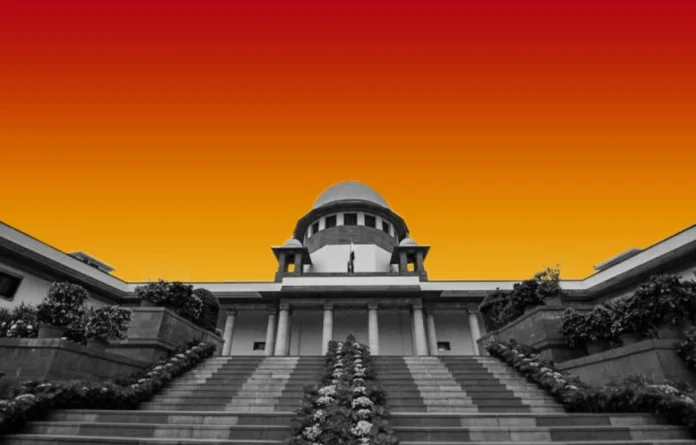The Supreme Court has requested Chief Justice of India Sanjiv Khanna to issue administrative directions clarifying that applications seeking exemption from surrendering while filing an appeal in the Apex Court could not be entertained unless the petitioner was sentenced to a term of imprisonment.
Noting the apparent anomaly in the listing of exemption applications, the Bench of Justice Vikram Nath and Justice Sandeep Mehta called for uniformity in adherence to the Supreme Court Rules, 2013, which laid down the procedure in the matter.
It was rare for an Apex Court Bench to urge the CJI to intervene on the administrative side. Judicial Benches usually focused on adjudication rather than procedural directives, which fell in the exclusive domain of the CJI. However, the Bench’s call for uniformity in implementing the Supreme Court rules highlighted the pressing need for administrative clarity to prevent procedural inconsistencies.
The top court of the country noted that Order XXII Rule 5 of the SC Rules explicitly permitted exemption from surrendering only when the petitioner was sentenced to imprisonment and not in other cases, such as the rejection of anticipatory bail or the denial of an extension of interim bail.
The Rule prescribed that if someone appealing a case was sentenced to jail, they must either submit documents to prove they have surrendered to authorities when filing their appeal, or move an application seeking permission not to surrender.
The Bench noted that the Supreme Court Registry had been incorrectly entertaining applications seeking exemption from surrendering in various other categories of cases, such as the rejection of anticipatory bail or rejection of a prayer for an extension of interim bail.
It directed that the matter be placed before the CJI for issuing formal instructions to the Registry and relevant administrative sections regarding the filing, scrutiny and numbering sections concerning matters in which Order XXII Rule 5 would apply.
The Apex Court issued the directions while dealing with a criminal case arising from Gujarat.
Citing the Mahavir Arya Vs Government of NCT of Delhi (2021) case, the Bench held that Order XXII Rule 5 applied only in matters where the petitioner was sentenced to a term of imprisonment. It could not be invoked in cases involving cancellation of bail or rejection of anticipatory bail.
In Kapur Singh Vs State of Haryana (2021) case, the Apex Court categorically stated that Order XXII Rule 5 did not mandate surrender or exemption when a person was not sentenced to imprisonment, it added.
The Bench held that an application seeking exemption from surrendering could not be entertained or listed before the Judge-in-Chambers in any special leave petition, except where the petitioner had been sentenced to a term of imprisonment.


